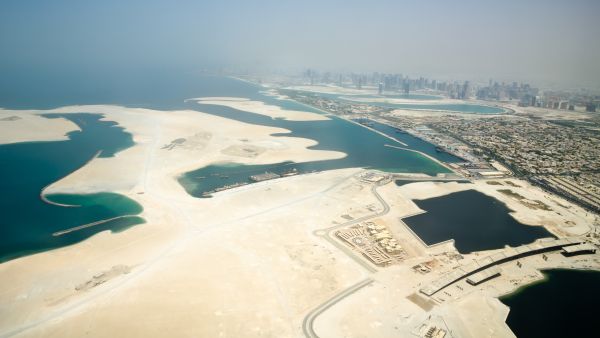The COVID19 crisis has left a tremendous impact on all sectors all around the world, but in the Arab World, the damage has been significantly deeper as it has hit already vulnerable economic and social systems.
"The #COVID19 pandemic has exposed fault lines, fissures & fragilities in societies & economies around the world — & the Arab region is no exception."
— United Nations (@UN) July 26, 2020
-- @antonioguterres says the crisis is an opportunity for the Arab region to build back better. https://t.co/gvvgRLSEf5 pic.twitter.com/pnXWaItS60
In a report published last July, the UN has tackled the different layers of the economic shock that rocked Arab economies in the wake of the COVID19 pandemic, providing policymakers with several recommendations that can potentially turn the darkest of times into an opportunity to "build back better;" calling upon governments and decision-makers to seize the moment and take daring choices that can create a better and more solid future, one that is based on the UN sustainable development goals.
The report has included a number of rather surprising figures that show how heavy of an impact the pandemic has left on Arab states. Below, we take a look at some of the most important numbers provided by the report, before we explore the report's suggestions.
- The Arab population has reached about 436 million.
- 115 million people are under the poverty line.
- 14.3 million are unemployed.
- 2020 economic contraction in non-conflict countries is near 5.7%.
- 2020 economic contraction in conflict-struck countries is up to 13%.
- Arab stock markets have dropped by 23% following the COVID19 outbreak.
- Women earn 78.9% less than a man on a per capita basis.
- Women lose about 700,000 jobs in the informal sector they heavily rely on.
- Migrant workers make up 40% of the region's workforce.
- 55.7 million people are in a dire need of humanitarian assistance.
- 26 million people are forcibly displaced (internally and externally).
- 74 million are at a high risk of contracting the coronavirus due to the lack of cleaning facilities.
- The region is in the world's highest rank in terms of wealth inequality worldwide; 31 billionaires own as much as the bottom half of the region's population in 2020.
COVID-19 and the Arab region: An opportunity to build back better https://t.co/aKaNjuB2mQ
— The Daily Star Lebanon (@DailyStarLeb) July 25, 2020
These figures, in addition to the fact that all Arab states have experienced different levels of revenue loss during 2020, whether their economies are oil-dependent or not, all point at a very serious moment for the region, one that requires both governments and private sectors to join efforts in order for them to change these realities and create more resilient communities, ones that can actually face potential future shocks.
The report continues to describe the different challenges faced by the region's population, including economic inequality, lack of access to essential services such as education, healthcare, and decent jobs. It also highlights the extended damage caused by armed political conflicts in several Arab countries, which has deepened poverty rates and destroyed the already troubled attempts of development.
However, the report leaves readers on a slightly hopeful note as it provides a number of recommendations that might help as main guidelines to redirect efforts into resolving the most difficult issues.
Amongst these recommendations are ones concerned with slowing the spread of the coronavirus by boosting healthcare services provided to different groups in each country, including the disadvantaged, the poor, and the displaced.
The UN also calls on Arab states to set up social protection programs that promote equality, throughout supporting investments efforts that can create well-paying jobs and help in rebuilding the economy, in addition to creating more inclusive service programs such as universal healthcare systems, senior citizens pensions, and affordable education for all.
"This crisis will cause an additional 8.3 million people to fall into poverty in the Arab region...it is crucial that #recovery measures take into account and address inequalities to build back better"
— Pietro Gagliardi (@pgagliardi2) November 27, 2020
-- @OECD_DSG_Schlag at the #MED2020 conference pic.twitter.com/nDowhsXSHf
The report also notes that it is time for all Arab states to boost economic recovery and keep their efforts focused on reducing unemployment and poverty rates, by offering their most vulnerable groups different forms of tax exemptions and suspended loan payments until the end of the crisis.
Finally, the UN report hopes that Arab states start reforming the different institutions that can eventually help alleviate the various challenges their populations face, in order for them to be more resilient in the face of future crises.
Which of these recommendations do you think should be the first priority for Arab governments? Do you think that Arab officials have already been working towards a more sustainable future?







